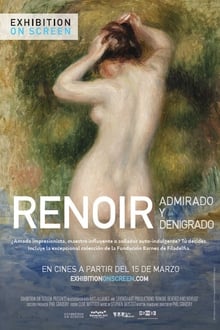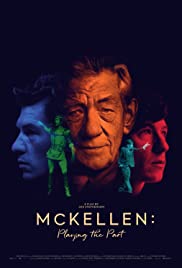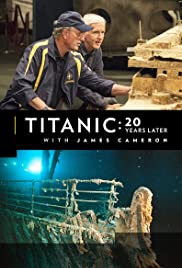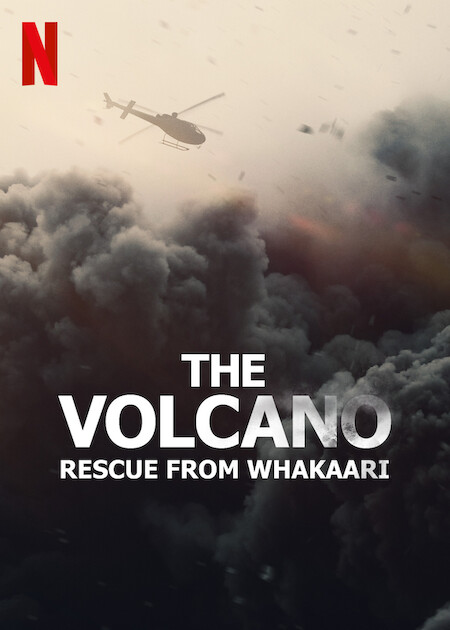
Pierre-Auguste Renoir is known and loved for his impressionist paintings of Paris. These paintings count among the world’s favourites. Renoir, however, grew tired of this style and changed course. This film, based on the collection of 181 Renoirs at the Barnes Foundation in Philadelphia,– examines the direction he then took and why it provokes such extreme reactions right up to today. Some claim they are repulsed by Renoir’s later works and some claim they are seduced. What may surprise many is that among the many artists who sought Renoir’s new works out and were clearly highly influenced by them were the two giants of the 20th century – Picasso and Matisse.
You May Also Like

Built upon a 14 hour interview, McKellen: Playing the Part is a unique journey through the key landmarks of McKellen’s life, from early childhood into a demanding career that placed him in the public eye for the best part of his lifetime. Using an abundance of photography from McKellen’s private albums and cinematically reconstructed scenes, a raw talent shines through in the intensity, variety and devotion to that moment in the light.

The 1980 eruption of Mount St. Helens was the deadliest in U.S. history. Survivor testimonies and rare images reveal the cataclysms it unleashed.

The people of Footscray are battlers and so is their football team. The ‘mighty’ Bulldogs haven’t won a premiership since 1954. The club is close to broke and the AFL keeps trying to kill them off for the sake of the national competition. Year of the Dogs is a documentary following the fortunes of the Footscray Football club, its players, fans and staff as the club struggles to survive the 1996 Australian Football League season.

In this beautiful and thought-provoking film, artist and film maker Roz Mortimer leads us on a hypnotic journey to the High Arctic. Using historical texts, medieval maps and contemporary first person accounts, Mortimer explores the traditional relationship Inuit have to the earth and gently challenges our Western relationship to science and knowledge. This poetic and visually stunning film weaves epic scenes of contemporary Inuit life with startling throat singing performances and staged tableaux set within the frozen Arctic landscape.

Talib Shah Hossaini, a 37-year-old Afghan filmmaker and asylum-seeker, lives in Moria on the Greek island of Lesbos – the biggest refugee camp in Europe until it burnt to the ground in autumn 2020. One year into his life in the camp, Talib Shah finds himself on the verge of losing hope. Instead of giving up, however, he decides to shoot a film called Picnic − an insider’s look at the lives of thousands of refugees stuck in a place sometimes described as a humanitarian disaster. Exploring topics such as dreams versus reality, art as a means of survival, or the current immigration policies in Europe, the film invites us to become better acquainted with the people who will soon be our neighbours.

For the 20th anniversary of “Titanic,” James Cameron reopens the file on the disaster.

Gary Lineker, Terry Butcher and Paul Parker revisit the scene of the 1990 World Cup semi-final between England and West Germany.

A close examination of the Whakaari / White Island volcanic eruption of 2019 in which 22 lives were lost, the film viscerally recounts a day when ordinary people were called upon to do extraordinary things, placing this tragic event within the larger context of nature, resilience, and the power of our shared humanity.

The inside story behind the hunt for ISIS poster boy “Jihadi John” by the US and British military and intelligence services. An interrogation of the twisted worldview espoused by ISIS and its propaganda machine which was operated by “Jihadi millennials” who turned social media sites such as Twitter and YouTube into recruitment platforms.

An immersion into the rich landscapes of Sable Island and the life of Zoe Lucas, a naturalist and environmentalist who has lived over 40 years on this remote strip of sand.

Driven to maintain social order, policing in the United States has exploded in scope and scale over hundreds of years. Now, American policing embodies one word: power.

An emotionally charged look at three polygamous families in Bali